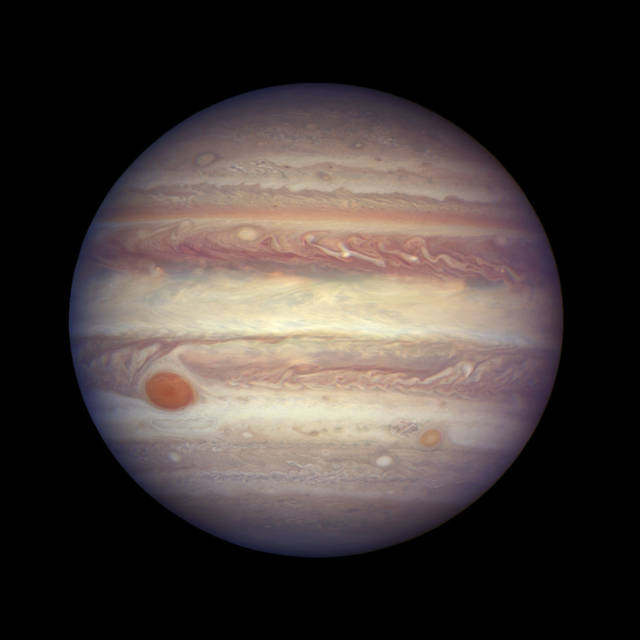CAPE CANAVERAL, Fla. — Just months after the discovery of our first known interstellar visitor, it turns out there’s another asteroid from yet another star system residing in our cosmic club in plain view.
Scientists reported Monday that this interstellar resident is an asteroid sharing Jupiter’s orbit but circling in the opposite direction.
The asteroid, known as 2015 BZ509, has been in this peculiar backward orbit around the sun ever since getting sucked into our solar system, the researchers said. About 2 miles (3 kilometers) across, it joined our neighborhood in the first moments after our solar system formed 4.5 billion years ago.
The French and Brazilian researchers base their finding on extensive computer simulations showing BZ always has orbited around the sun in reverse and thus harkens back to the beginning of our solar system.
The results, published in the journal Royal Astronomical Society , come several months after the discovery of our first known interstellar visitor, a smaller, cigar-shaped asteroid that zoomed by last fall.
That passer-by rock was named Oumuamua, Hawaiian for messenger from afar arriving first, or scout.
“Oumuamua is of interstellar origin but it is also only a tourist passing by our solar system,” said lead author Fathi Namouni of the University of Cote d’Azur in Nice, France. “BZ is not. It is a bona fide immigrant and the notion of immigration is a hot topic nowadays all over the world!”
Namouni said stars were closer back when our solar system was forming, and asteroids were zipping around between star systems. It’s extremely unlikely — “practically zero” — that BZ came from the same star system as Oumuamua, he noted in an email.
He expects lots more interstellar immigrants in our backyard.
“There is no reason why there shouldn’t be more masquerading as solar system asteroids like BZ did so far,” Namouni wrote. He said the area just beyond Neptune, the farthest planet in our solar system, might be teeming with extrasolar asteroids — or exo asteroids — like BZ.
It’s extremely unlikely — “practically zero” — that BZ came from the same star system as Oumuamua, according to Namouni.
Co-author Helena Morais of Sao Paulo State University in Brazil said she was surprised by the finding, but noted “that’s part of the fun” of science.
“If we may have asteroids that pass by, then we should also expect asteroids that come to stay,” she wrote in an email.
By identifying more immigrant asteroids, Namouni said, scientists can determine their composition. If BZ contains water, for example, researchers can compare it with Earth’s water and, perhaps, better understand how water originated here at home.
———
The Associated Press Health & Science Department receives support from the Howard Hughes Medical Institute’s Department of Science Education. The AP is solely responsible for all content.



This planet is 30 times bigger than the earth. About. Big planet.